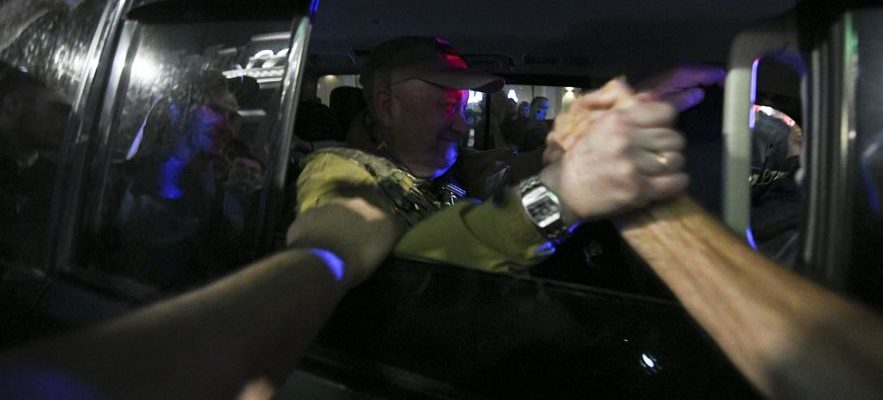A week earlier, the scene would have seemed unthinkable: a column of Russian tanks heading straight for Moscow with, in all likelihood, the will to fight. Vladimir Putin who, in reaction, speaks on television, looking serious, to denounce “a betrayal” and “a stab in the back”. If the rebellion launched by the boss of Wagner, Evgueni Prigojine, did not deliver all its mysteries, it came to lay bare the unsuspected fragility of a Russian regime wrung out by 16 months of war in Ukraine.
Despite Wagner’s about-face, Putin’s regime seemed to waver for a few hours. “This mutiny is the result of the wear and tear of the Russian system, accelerated by its inability to carry out the “special military operation”, launched almost a year and a half ago now”, underlines the general (2S) Jérôme Pellistrandi, editor-in-chief of the National Defense Review. And it raises, as a corollary, serious questions about the ability of the head of the Kremlin to ensure his long-term political survival, in the event of the war being prolonged.
“The deep divisions within the ruling elites and the Russian army have come to light, points out Galia Ackerman, a historian specializing in the post-Soviet space. And this rebellion has shown that Putin’s regime is more unstable than what one might think.” The myth of the strong man, skillfully maintained by the head of the Kremlin over his two decades in power, has taken a turn for the worse. And it does not bode well for his future.
Risk of further destabilization?
According to a wide study published in 2021 in the scientific journal Conflict Management and Peace Science, focusing on military mutinies in Africa, these rarely degenerate into a coup, but they increase the likelihood of future unrest. “The longer the conflict lasts, the greater the risk of instability of the Russian regime,” opines Yohann Michel, researcher on defense issues at the International Institute for Strategic Studies. To his dismay, the Kremlin chief may not have the luxury of waiting for a possible weariness of Western support for Ukraine, or a possible change of administration in the United States after the 2024 presidential election.
“Autocratic regimes are often more fragile than they let on, continues the researcher. They tend to collapse more easily than democratic regimes, especially in the event of military defeat, due to the questioning of leader’s legitimacy. The reaction, at best apathetic, of the Russian population following the mutiny of the former cook of Putin, is not enough to reassure the head of the Kremlin. No more than the images showing the boss of Wagner leaving Rostov as a hero, acclaimed by some of the inhabitants.
Wagner boss Yevgeny Prigojine leaving Rostov-on-Don on June 24, 2023, to cheers from locals
© / Anadolu Agency via AFP
“Putin is stuck because he now has to deal with the possibility of a mutiny within his own army, while it is waging a war that he absolutely wants to win”, abounds Galia Ackerman. Especially since the question of possible complicity within the Russian army did not take long to arise. Quoting US officials, the New York Times thus affirmed Wednesday that the Russian general Sergei Sourovikine, and possibly other senior officers, had been informed of the plan of mutiny of the boss of Wagner. According to information from the independent newspaper The Moscow Timesthis close friend of Prigojine has since been arrested, auguring a possible purge within the security apparatus.
